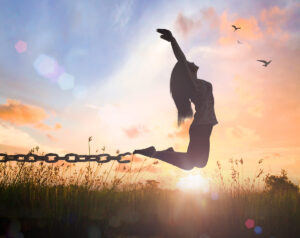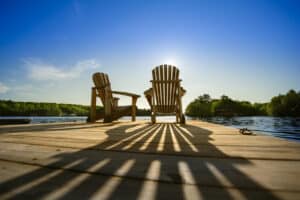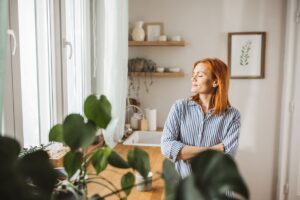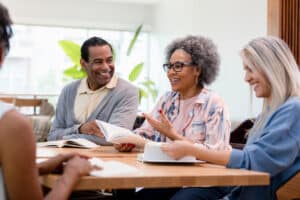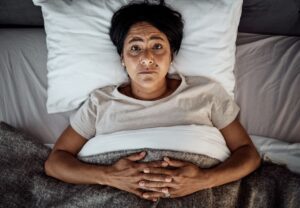This is our fourteenth or fifteenth week of total Lockdown (after a while you lose count). In the UK, the instruction to all those in a medically vulnerable category was not to go out at all; to see nobody, and to wash every item, even groceries brought to your door.
We did this because the opposite was unthinkable, and, while I’m not aiming to depress folks even further, you already know from the introduction that I take COVID-19 seriously and my heart aches for anyone who is sick, the bereaved and anyone who lost their life too soon.
Lockdown fell fast, giving little time to prepare for the unthinkable. We all thought it’d be for a few weeks – max a month, so no need to worry. In the “hierarchy of needs” however, the first thing you face in a Lockdown household is the stark thought that in a wealthy, developed country for the first time, we genuinely faced running out of food.

Not all food, I hasten to add, since had we been forced to eat frugally, we were probably in no danger of starvation for several months from what I could forage from the back of my cupboards. (I found flour from 2018, incidentally, which has been used to no detriment. The desiccated coconut which expired in 2012, however, went to the birds).
In the first few days, friends said not to worry, that they would shop for us. But then, terrible images started to come through from Italy and there was a real dilemma for all of us about the morality of letting loved ones or our grown-up kids risk their own health for us.
Realisation #1: Shop Local
I was not willing to have this happen so I became an online hunter and gatherer. Initially, supermarkets could not cope with increased demand but we found local suppliers of all basics who had switched to home delivery. Sourcing locally felt good.
Then there was income. My partner is retired so his modest income is relatively secure. I’m a self-employed freelance and clients were all shutting up shop and cutting all non-essential spending. It looked like I was facing little work or earnings for an indeterminate period.
Realisation #2: Treating People Fairly Pays Off
The relationships of trust I have built up with clients proved invaluable. Despite their own, enforced shut-down, one client refused my genuine offer to cut my fee in half and has continued to put work my way and pay bills on time throughout. I was loyal to them before. I’m doubly so now. Others also came through and I was able to continue paying taxes in an economy that needs it. Most days, I remember this is a privilege.
At 59, and with a partner who is 73, the bulk of my current and future earnings are earmarked to a retirement fund. Necessity now meant re-classifying that money to survive. This may mean delaying retirement or living more frugally in the future, depending on how the markets recover.
Realisation #3: Save What You Can. Rainy Days Do Come
The prudence that my parents instilled in me from birth to save during the good times so that you could survive six months if you had to, proved to be sterling advice.
We are neither so rich as to be unaffected by Lockdown, nor so poor as to have to live hand to mouth. At this stage, a good friend who had very sadly been widowed much too young right at the start of Lockdown gave me a phrase I’ve clung to with respect. She said, “I’m not great but I’m grateful”.
Realisation #4: The Importance of Gratitude
We refurbished our own home from a derelict some years ago and enjoy grafting in the house and garden. The notion of being grateful for having a comfortable home and garden to spend time in, during months when we could not go beyond its boundaries, brought gratitude into sharp focus. Even on difficult days, we know how lucky we are.
Realisation #5: Everybody Needs Purpose
I work in Communications and, since work didn’t actually dry up for me, I’ve watched online conversations become more desperate, angrier, more anarchic; echoed on TV with the growth of marches, countermarches, raves and vandalism, even in the midst of a pandemic.
When people feel powerless and trapped they need to prove something to themselves; that they still count. Many were organising themselves into neighbourhood groups to help the needy. Still others were gathering to protest. All of us, in our own ways, were trying to show we matter.
Realisation #6: Values

I could go on and on with what I’ve learned. Lockdown for us is ongoing at the time of writing and I have no idea what the post-COVID world will look like, but I am hopeful that it will eventually be a kinder one;
Kinder to nature through lessened consumption.
Kinder to ourselves since four months of uncut hair and freedom from formal clothes will be hard to turn back from. (Were gel nails ever really that important?)
Kinder to work-life balance, as working from home has been proven to be effective
Kinder to society since the survival of ourselves, our families, friends and neighbours has seldom been brought into sharper focus.
Kinder to those less fortunate. Food banks and clothing banks have been heroic in the UK but the longer-term aim must be to address some of the inequalities in society and deliver greater stability for all.
I’m an optimist and I believe in people’s ability to do the right things. Like me, they’ve certainly had plenty of time to consider their values, their lives and even their mortality over recent months.
Marjorie has worked in and around corporate communications for thirty years; handling crises, launches, delivering training, Comms strategy and corporate storytelling. She lives and works near Glasgow in Scotland and is the author of Isolation Diaries.

